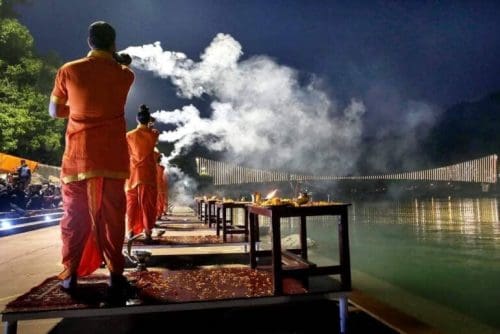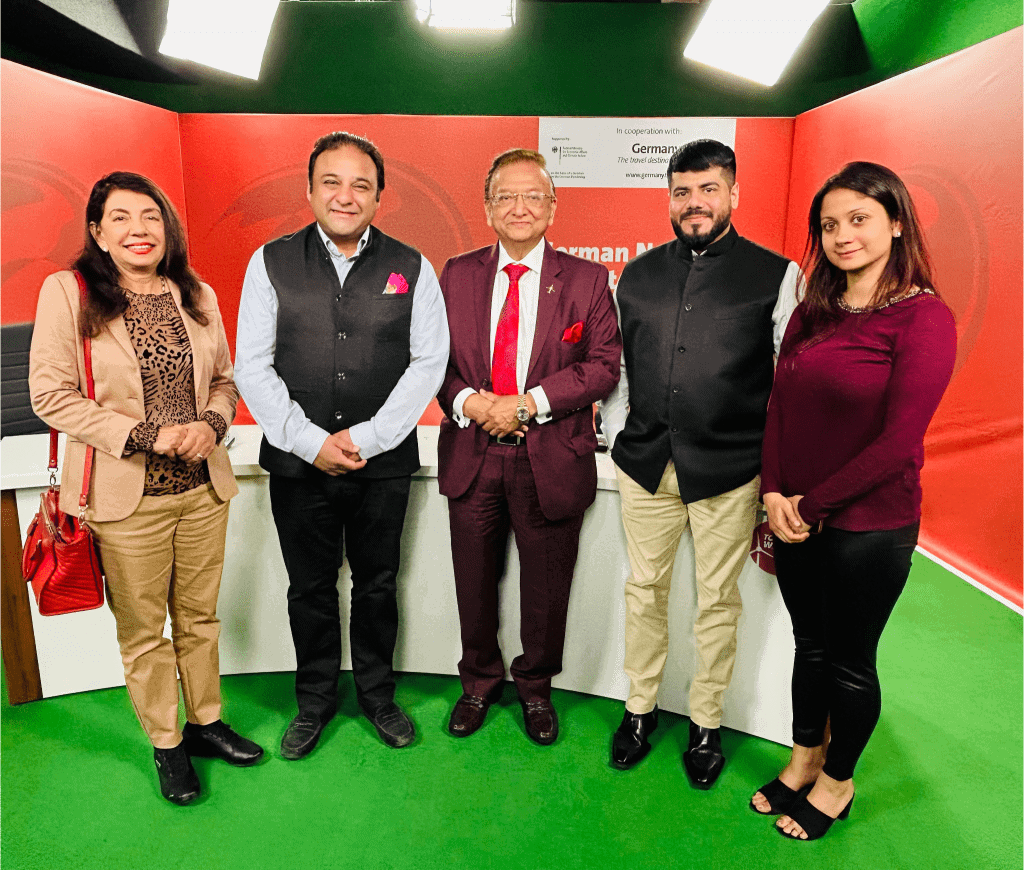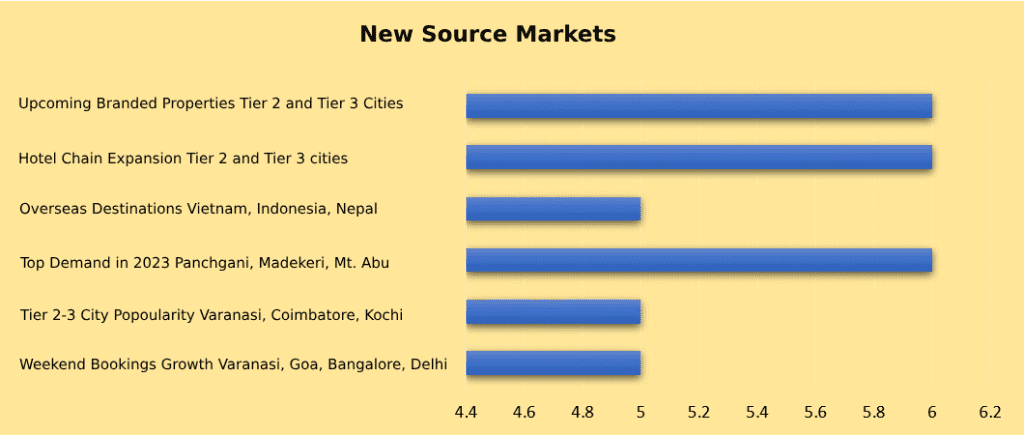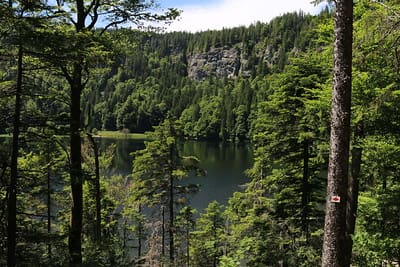How AI and Sustainability Drive Indian Travel Choices was the central theme of the Market Insight Webinar presented by the German National Tourist Office (GNTO). Offering researched insights, Kamal Gill, Executive Editor of Today’s Traveller, provided a riveting keynote address.
Addressing German suppliers, she shed light on the transformative role of AI on travel trends and consumer behaviour and Sustainability as a core desire among Indian travellers.

The Webinar, meticulously curated by Romit Theophilus, Director, German National Tourist Office India, Anika Tandon, Manager – Sales and Marketing, German National Tourist Office, and the GNTO team was attended by several distinguished German partners. GNTO’s objective with the Market Insight Webinar was to congregate luminaries and facilitate dialogues brimming with ideas and insights, engendering a culture of learning and stimulating pivotal conversations.
Kamal Gill in her Keynote address delved deep into the transformative role of AI within the travel realm, focusing particularly on its influence on travel trends and consumer behaviour. The keynote underscored the nuances of sustainable travel and the evolving dynamics of Indian travellers. Emphasizing key insights like the prospects emanating from the Indian source market, the address also spotlighted two emergent paradigms: Sustainability & Innovation.
She unravelled the intertwining relationship between Artificial Intelligence and the transformation of travel behaviours, supplementing the discourse with pertinent case studies. The address culminated by exploring the myriad opportunities this technological evolution presents for positioning Germany as a quintessential travel destination.
Post the keynote, Romit Theophilus, Director, German National Tourist Office India shared well-researched statistical insights with the attendees, presenting a comprehensive PowerPoint exposition delineating the trajectory of the burgeoning German Tourism market, vis-a-vis Indian travellers, and spotlighting potential future growth vistas.
The event further transitioned into an enlightening Panel Discussion, led by Romit Theophilus, Director, German National Tourist Office India featuring industry leaders. Subhash Goyal. Chairman, STIC Travel Group, Kamal Gill, Executive Editor Today’s Traveller and Managing Director, Gill India Group, and Vikram Malik, Business Head – Sales and Operation, Adotrip.com.
The dialogue centred around the metamorphosing trends in the Indian market. The panel examined the adaptations in Indian travel behaviours amidst global crises and extrapolated the consequential opportunities for Germany as a travel hub. The discourse also encompassed the anticipations of Indian tourists regarding sustainable travel to Germany and discussed strategies to meet these expectations effectively.
Highlights of the Keynote Address

Here are the essential takeaways:
We are navigating what might be the most dynamic era in travel consumer behaviour. The fluidity in preferences means that strategies successful in one season might not yield results in the next. Embracing adaptability, openness to change, and alignment with contemporary trends are vital in appealing to the modern Indian traveller.
Two pivotal trends are dictating the psyche of the Indian traveller:
- The Role of AI: AI’s profound influence on altering traveller purchasing habits.
- Sustainability as a Core Desire: Travelers now prioritize sustainability when selecting destinations, accommodations, and activities.
Another crucial insight sheds light on the rising demand for immersive experiences during vacations. This burgeoning need underscores the necessity for suppliers to innovate and think out of the box in their offerings.
A word of caution was also voiced by her, highlighting the addictive nature of experiences. As travellers yearn for progressively richer and exhilarating adventures, suppliers are urged to continually elevate their game and embed these heightened experiences within travel packages.

Current market size and market insights: courtesy Statista
- Revenue in the Travel & Tourism market is projected to reach US$18.91bn in 2023.
- Indian Population is 144 billion people
- Revenue is expected to show an annual growth rate (CAGR 2023-2027) of 13.47%, resulting in a projected market volume of US$31.35bn by 2027.
- The largest Travel & Tourism market is the Package Holidays market with a projected market volume of US$8.33bn in 2023.
- In the Travel & Tourism market, 59% of total revenue will be generated through online sales by 2027.
- In the Hotel market, the number of users is expected to amount to 61.33m users by 2027.
- User penetration is 6.7% in 2023 and is expected to hit 9.6% by 2027.
- The average revenue per user (ARPU) is expected to amount to US$198.60.
Key changes in Indian travel consumer behaviour
Some of the key changes in the Indian travel consumer profile in recent years have been globalization, digitalization, sustainability, and the aftereffects of the pandemic.
Technology adoption has led to Ease of mobility, and the usage of the internet as a quick and reliable tool to search and explore new destinations, new routes, and quick travel information for tailor-made choices in food, activity, accommodation and budget has resulted in exponential growth.
The extent of this change? According to McKinsey & Company, 71% of consumers expect a personalized approach, and 76% get frustrated if they do not get it. Ignoring personalization becomes a highly hazardous business decision with time.
With the massive increase in travel consumption and the post-pandemic effect, consumer demand has also changed for more sustainable travel options both for personal consumption and leaving a smaller carbon footprint. This change is very noticeable as also the blurring of lines between Business and leisure trips.
There is one other fundamental change in Indian travel customer behaviour, which is significant. While Indian travellers consistently ranked among the top spenders courtesy shopping, today Indian travellers are splurging on themselves, be it accommodation, adventure activities, spa facilities, food, fine dining and so on.
In a recently released key report by Booking.com, with McKinsey, it says that by 2030, total expenditure by Indian travellers will soar to USD 410 billion making India the fourth largest global spender. The number of aggregate trips is expected to increase from 2.3 billion in 2019 to a staggering 5 billion in 2030.
How India Travels by Booking.com with McKinsey
This research has interesting inputs on the travel behaviour of Indians which include the following:
- Indian travellers thrive on the thrill of quick and exciting travel plans.
- Food is a priority: Travellers emphasised culinary convenience, with over 80% of them valuing restaurant and room service options during their stay.
- There is a surge in demand for alternative accommodation options, such as hostels, campsites, vacation rentals, and chalets. The growth rate for these alternative accommodations outpaced traditional hotel and managed chains, indicating a paradigm shift in travel preferences.
- The sway of social media on travel behaviour is big and evident. In the year 2022, 91% of Indian travellers expressed that YouTube is their preferred social media platform for travel inspiration, followed by Instagram, which holds the interest of 85% of Indian travellers.

Thomas Cook (India) released an impactful study titled “The India Holiday Report ” on consumer behaviour
In May 2023, Thomas Cook (India) released an impactful study titled “The India Holiday Report.” This report reveals changing consumer behaviour, travel habits and preferences of the Indian traveller.
No less a person than Rajeev Kale, the President & Country Head – Holidays, MICE, Visa, Thomas Cook (India) Ltd., mentions that the inputs on, “Consumer sentiment will serve a key catalyst to our Teams in creating customized holidays and exceptional experiences.” These insights will help all travel suppliers to do the same. Some important points of this report:
- Higher Spends: despite supply constraints leading to higher pricing, over 80% of respondents displayed an appetite for higher spends.
- Emerging High-growth segments: While multigenerational families (75%) and Couples/DINKS (62%) continue as strong segments, new segments include:
- Rise of Young India: Approx. 65% of India’s population is below the age of 35. Young India (millennials and Gen Z) form the new powerhouse for the sector with the highest intent to travel (95%). Concept of YOLO (you only live once) is driving travel demand
- Gen S: India’s Silvers/Seniors have significant disposable income post-retirement, are displaying high travel appetite (58%), especially for premium holidays.
- Experiences driving demand: 78% of respondents opted for experience-led travel to create memories of a lifetime with deeper exploration and distinctive local elements Vs. regular sightseeing: bucket list destinations/elements (65%); gastronomy (45%); outdoor-adventure-fun (50%); culture and history (30%)
- Surge across domestic and international travel: While only domestic holidays were preferred by 40% of respondents and only international by 66%; a significant 90% opted for both.
- International tourism is witnessing a strong resurgence. Despite visa challenges, Europe is a clear favourite preferred by over 46% of respondents led by Switzerland, France, Spain and Italy. Long hauls like Australia with end-to-end digital visa processes are seeing an uptick of 20%. USA continues to face visa challenges and was selected by 8%.
- Sustainability: 30-35% of respondents are becoming more mindful of the environment/local communities
Use of OTAs
According to a survey by Rakuten Insight on online travel agencies (OTA) conducted in June 2023, 53 per cent of Indian women had used an online travel agency. In comparison, 42 per cent of Indian men had used an OTA before.
Online travel agencies or online platforms commonly used are Booking.com, Expedia, Airbnb, Trivago, MakeMyTrip, Cleartrip, Goibibo, Tripadvisor, Agoda, Skyscanner, Yatra, Thomas Cook, etc which offer a wide range of tourism services.

Some of the most prominent use cases for AI in travel and tourism
- Travel booking and planning
- Revenue management
- Customer service
- Business finances and accounting
- Self-service technology
- Marketing and advertising
A report by McKinsey & Company highlights that modern AI analytics techniques are 128% more effective for the travel industry than traditional analytics methods. This is the highest rate compared to 18 other industries studied during the research. According to the same research, AI will likely bring the most value to the travel industry (around 400 billion USD) than to any other niche.
A few examples of AI’s transformative impact on travel in India:
- AI is instrumental in Analysing User preferences and buying history
For example, Sabre Travel AI empowers airlines and travel allies with real-time insights into customer preferences, tailors offers based on individual interests, streamlines processes, and boosts revenue potential. - Advanced Forecasting
Through predictive analytics, AI enables companies to forecast travel trends, demands, and price fluctuations, allowing them to optimize pricing strategies and inventory, influencing customer purchasing decisions and travel planning.
For example, KAYAK, a renowned travel search platform, harnesses AI and machine learning to tailor flight, hotel, and amenity searches to individual traveller needs. Furthermore, its AI-backed price forecast tool anticipates the potential rise or drop in flight costs. Larger online travel agencies, like Booking.com and Expedia, are using chatbots to provide customers with real-time suggestions, such as the cheapest flights available. Niche websites like Hopper also advise users on when to buy airline tickets to get the best deals. - Enhanced Customer Service
AI-powered chatbots and virtual assistants have revolutionized customer service in the travel industry.For example, Global hospitality giant IHG has unveiled an AI-operated bedroom to elevate guest experiences. Teaming up with Josh.ai, IHG employs natural language processing to interpret voice instructions, enabling guests to effortlessly ask for music, streaming services, and more. Expedia also launched its own plugin for ChatGPT so travellers can start a conversation on the ChatGPT site and then select the Expedia plugin,
- Streamlined Operations
AI helps in optimizing and automating various operational processes thus helping customer experience by reducing wait times and human errors. For instance, TripAdvisor’s AI-driven voice tour initiative integrates virtual assistants, such as Amazon Alexa and Google Assistant, to provide an auditory-guided journey of selected destinations. - Behavioural Insights
AI analytics provide deep insights into customer behaviours, preferences, and sentiments, enabling travel companies to tailor their marketing strategies. Travel companies (such as airlines and hotels) use AI to predict customer behaviours (like flight and hotel cancellations). Similarly, booking platforms, like Airbnb (ABNB 1.67%), are tapping into AI to give travelers better, more personalized advice. Airbnb CEO Brian Chesky described his vision for AI at the company, saying it aimed to build the ultimate AI concierge. - Data-Driven Decision Making
AI enables the aggregation and analysis of vast amounts of data from diverse sources, aiding travel companies in making informed and strategic decisions. For instance, Platforms like MakeMyTrip and Yatra employ AI to offer personalized travel packages and real-time support to their users, influencing travel decisions and enhancing user satisfaction. The adoption of AI in the Indian travel industry is not only transforming business models and operational efficiency but is also reshaping consumer expectations, preferences, and travel behaviours, paving the way for a more responsive, adaptive, and consumer-centric travel ecosystem. - Sustainable Travel Planning
AI-powered platforms are helping travellers make more sustainable choices by offering eco-friendly travel options, accommodations, and activities. For example, Modern Indian travellers are turning to AI tools such as ChatGPT and Bard as virtual travel consultants to aid in their vacation planning. Notably, a traveller recently leveraged ChatGPT to craft a sustainable and nature-led vacation in Europe. - Safety and Security
AI technologies like facial recognition and biometric authentication are enhancing safety and security in travel, influencing customer confidence and travel decisions. - Social Media Influence
AI algorithms on social media platforms analyze user interactions and preferences to curate travel-related content thus influencing travel aspirations, and decision-making among consumers. Social media has changed how we plan and remember our trips. Now, instead of just sharing photos, people can influence where others might want to go.
Some online travel and lifestyle influencers can make a place very popular, while a widely shared video can make a hidden spot famous. Plus, travellers can chat with locals easily using these platforms.
This kind of personal recommendation on social media helps destinations get noticed more than old-style ads. By using specific hashtags, tagging locations, and working with popular influencers online, destinations can become more famous. If content is interesting, the social media platform shows it to even more people. Destinations can also create fun contests and events online, making travellers want to share their own stories.
For example, many people learned about Iceland’s beauty through photos and posts on Instagram, which brought lots of tourists. Also, Airbnb used social media to show that staying in someone’s home can be cool. This made many travellers choose local homes over big hotels, wanting a special experience.
Which are the new source markets for Indian travellers?
It’s also time to look beyond the main metro cities which are currently still the largest producers of travellers – Del, Mumbai, Chennai, Bangalore, Pune, Hyderabad, Kolkata, and Ahmedabad.

The upcoming business hubs lie in 2 tier cities. According to a report by Cushman and Wakefield, these are Lucknow, Jaipur, Surat, Indore, Nagpur, Bhubaneswar, Vishakapatnam, Kochi, Coimbatore and Trivandrum. It follows that these new hubs of business growth will see an upward spiral of travellers both intercity and international outbound, so it’s good to target these Tier 2 cities along with the metros.
Booking.com reports a sharp growth in weekend bookings for alternative accommodation in top leisure and business cities such as Varanasi, Goa, Bangalore, and Delhi which are 4 to 5 times higher in 2023 than in 2022. While metropolises have remained top destinations, tier 2-3 cities like Varanasi, Coimbatore and Kochi are gaining popularity. Panchgani, Madikeri and Mt. Abu are topping the charts on growth for demand in 2023. The surge in demand for these unconventional destinations signifies a desire to transcend the ordinary.
Booking.com report also shares that Indians are increasingly looking overseas for their next vacation with new destinations like Vietnam, Indonesia and Nepal entering the top ranks. Increasing air connectivity, greater awareness, easier bookings and visa ease are facilitating this.
Leading global hotel chains are further expanding their presence into Tier 2 and Tier 3 cities such as Jodhpur, Dharamshala, Bodhgaya, Bilaspur and Coorg. Moreover, 70% of the upcoming branded hotel properties are also coming up in Tier 2 and Tier 3 cities like Kolhapur, Nashik and Puri.
What do guests from India expect from a trip to Germany and how can these expectations be met?

To substantiate, the Keynote address by Kamal Gill addressed the practicalities of meeting the expectations of Indian travellers seeking Sustainable travel experiences in Germany.
- Eco-Friendly Accommodations: Germany offers a myriad of eco-conscious accommodations, certified by recognized environmental labels. The Bio Hotels, for example, is a network of eco-friendly hotels committed to sustainability, offering organic food, waste reduction, and energy efficiency, providing Indian guests with sustainable living options during their stay.
- Personalized Travel Experiences through AI: Germany’s tourism sector is leveraging AI to analyze the preferences and behaviours of Indian travellers, thereby offering tailor-made itineraries, recommendations, and experiences, aligning with their specific interests and sustainability preferences.
- Sustainable Transportation: Germany’s well-developed and efficient public transportation system enables sustainable travel. Deutsche Bahn, the German railway company, offers eco-friendly travel options with substantial connectivity, enabling Indian travellers to explore the country’s landscapes and cities with a minimal carbon footprint. Electric vehicle rentals and extensive cycling routes further support green mobility.
- Cultural and Natural Preservation: Many regions in Germany prioritize the preservation of their natural landscapes and cultural heritage. The Black Forest, for example, offers sustainable tourism programs that enable visitors to experience the area’s beauty while contributing to its preservation. These initiatives resonate well with the Indian travellers’ growing desire for responsible and meaningful travel experiences.
- Eco-friendly Activities: Germany’s focus on eco-tourism offers Indian travellers a plethora of sustainable activities, such as hiking in environmentally protected areas, exploring UNESCO World Heritage sites, and participating in local eco-conscious festivals and events.
- Sustainable Cuisine Options: Germany is increasingly offering diverse culinary options with sustainability in mind, like farm-to-table restaurants and vegan eateries, catering to the varied and evolving palate of the Indian traveller, who is showing a growing preference for organic, locally sourced, and vegetarian/vegan options.
- Education and Awareness: Germany’s tourism board conducts educational programs and workshops on sustainable travel practices, enlightening Indian travellers on the importance of responsible tourism and providing them with the knowledge and resources to make eco-friendly choices during their trips.
- Utilization of Renewable Energy: Germany’s advancements in renewable energy and its commitment to reducing carbon emissions appeal to the eco-conscious Indian traveller. Many tourist spots, accommodations, and transportation options in Germany are powered by renewable energy sources, minimizing the environmental impact of travel.
In Summation
In summation, by seamlessly integrating the renowned attractions of Germany with AI, cutting-edge technology, and green initiatives, the nation can aptly address the desires of Indian visitors.
Germany possesses all the elements to offer Indian travellers profound, environmentally aware, and tailor-made journeys, thus establishing a worldwide gold standard in sustainable tourism.
Read more: News



